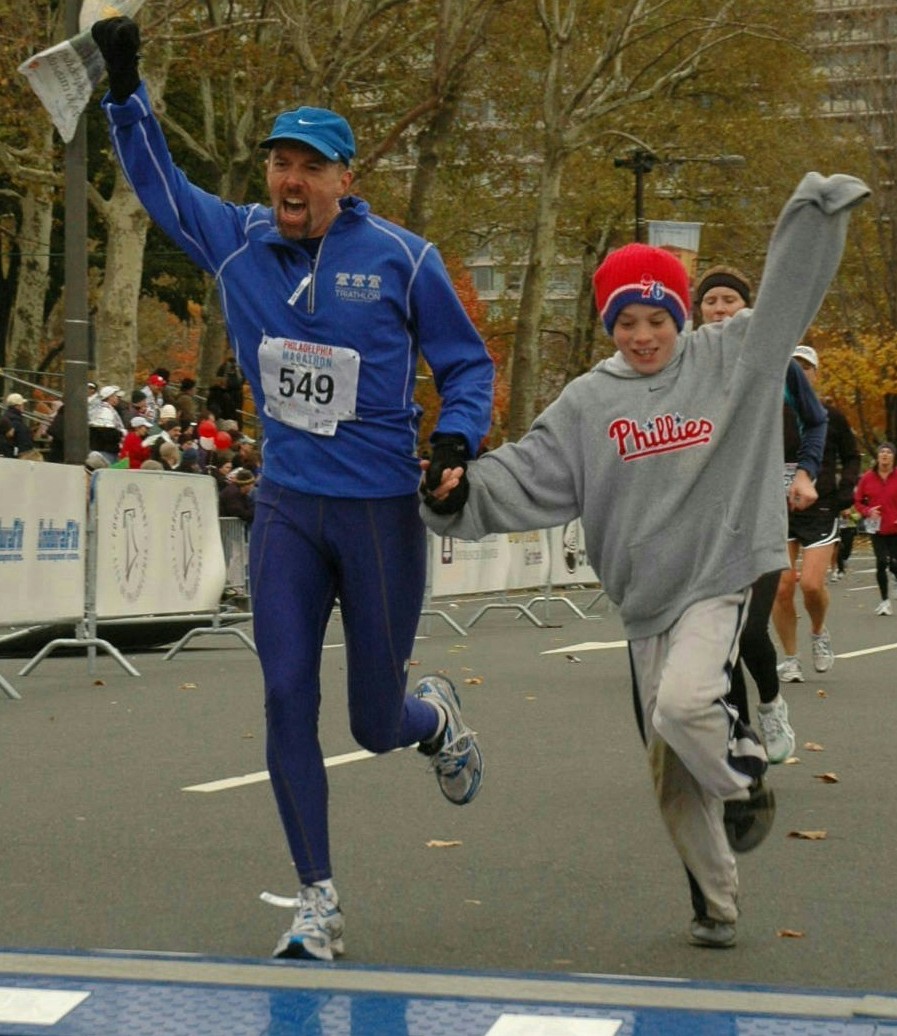I'm very fortunate to have a great team supporting my training, helping me work toward my marathon and Ironman goals. The "home team" wants to see me succeed, and they are willing (usually...often) to put up with early morning noise as I head out for a run, or late night noise coming home from a swim, or several-hours-long absences for long weekend runs and bike rides. Often, my son rides his bike with my while run after work, even occasionally when he'd really rather win the World Series on his PSP.
The "away team" (work/MCC), well they don't put up with much. Nor do they need to: because I'm a wannabe, not a professional athlete, training and racing are on my time, not MCC's time. But they support me by asking how training's going, how the latest race went, and the all-to-familiar look of acknowledging my obvious lack of good judgement when I remind them the distance of an marathon or a half-Ironman.
My extended family supports me with their emails and contributions to MCC (thanks, Aunt Susy!) My friends and neighbors support me by going along on rides and runs, wishing me well, and yes, also making contributions to MCC.
Even my doctor's in the mix - treating my occasional injury more aggressively, she says, than she would someone who is not a healthy athlete. Or maybe her role is to make me feel like I'm getting more serious treatment?
MCC students have a large team backing them up, too. They come to MCC with "home teams" that vary in support from tremendous to not. Some students have great family support to complete training and stay on the job once hired. Others have families and neighbors who actively, sometimes forcefully, discourage them from breaking out of the mold. I know a student at MCC Computer Technology Institute, where we offer an accredited associate degree that prepares students for a variety of career-track tech jobs, who has an adult son who is often in the house, dealing and using drugs. The student often moves out of the house when the son takes over, and is often at CTI before staff in the morning and stays until we lock up after evening classes. For students like this, the staff is his home team.
Regardless of the home or neighborhood situation, MCC rallies a team around every student. Instructors do more than teach valuable skills and information, they listen to problems and help students connect with other organizations, services, and opportunities to deal with challenges ranging from bad credit to chemical dependency to legal problems. Our case managers work with every student to make sure they are using all the resources the city, state, and federal government have available for them, in addition to other local organizations. After a student completes MCC and gets a job, our staff are ready to work with them a month later, a year later, and in one recent case, 15 years after completing the program. (In the 15-year case, a student worked at a small law firm since completing training. The law firm recently downsized and her position was cut. Having not applied for a job since right after completing training, she came back for help refreshing her resume and cover letter, and to get some interview practice.)
A student's team isn't only as deep as MCC staff. Our board members are active volunteers, who open doors to new employment opportunities, attract funding to sustain programs and secure new equipment, and rally other volunteers to conduct mock interviews, and talk with students about career planning, just to name a few examples. Elected officials, including City Council members, State Representatives and Senators, and U.S. Congressmen and Senators, secure program funding and come to MCC to talk to our students. They listen to our students' concerns and challenges, and, for at least one State Senator who once relied on welfare, help our students see that their career is not limited by their current status.
Finally, our students' team is completed by MCC's donors, who make all our work possible through their contributions, grants, and sponsorships. Money doesn't make the world go 'round, but it is a key ingredient in providing staff, equipment, books, and supplies that help students turn their lives around.
Subscribe to:
Post Comments (Atom)

No comments:
Post a Comment